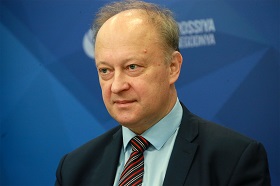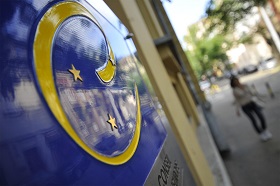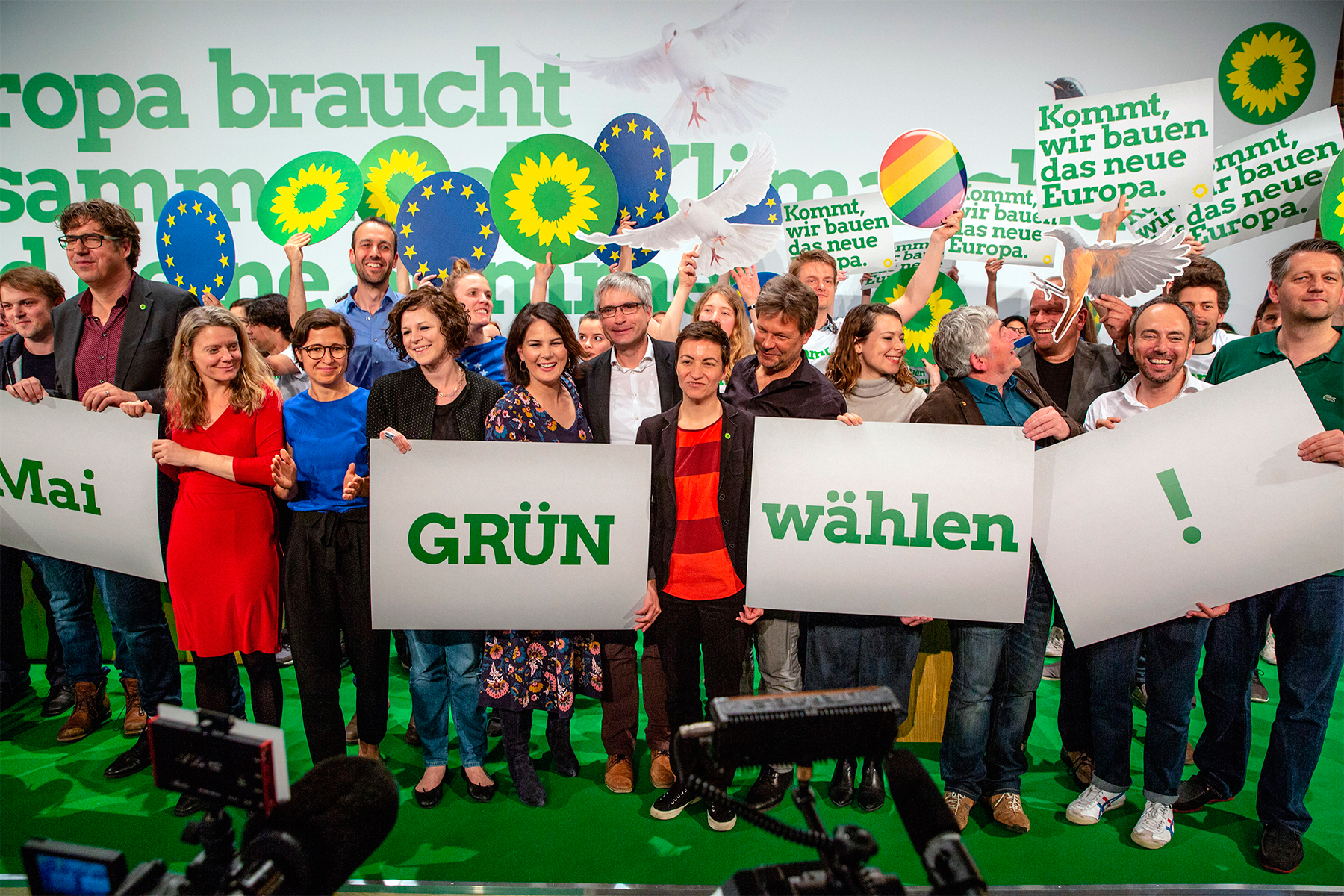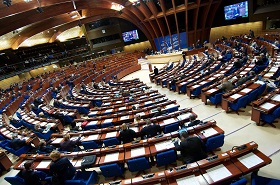One of the many complicating factors in EU-Russia relations is the asynchrony of their respective political cycles. The European Union has already entered a period of fundamental political and institutional changes, while the Russian Federation is only slowly approaching a tipping point in its domestic development. Today, it is arguably easier to make short-term predictions about Moscow than about Brussels — something not typical for the three decades of post-Cold War history.
Does Russia’s relative stability imply that Moscow will be by default the proactive side in its relationship with the European Union? I am not sure that this is the case. In any relationship, be it between individuals or between global actors, it is easier for the stronger side to take the initiative. The European Union, notwithstanding all its multiple crises, remains stronger than Russia in just about every respect. The only exception is the military domain. The European Union has clear advantages in terms of economy, demographics, modern technology, and “soft power.”
However, the odds are that the Russian position towards Europe will continue to be reactive rather than proactive and opportunistic rather than strategic. For Moscow, the EU is a moving target; moreover, it has always been a very complex and ambiguous partner compared to Russia’s other major partners like the US and China. Talking with officials in Moscow, one can notice a profound sense of doom in their approaches to Brussels; the most common approach is to take a wait-and-see position while monitoring the current wave of unpredictable European transformations.
One of the many complicating factors in EU-Russia relations is the asynchrony of their respective political cycles. The European Union has already entered a period of fundamental political and institutional changes, while the Russian Federation is only slowly approaching a tipping point in its domestic development. Today, it is arguably easier to make short-term predictions about Moscow than about Brussels — something not typical for the three decades of post-Cold War history.
Does Russia’s relative stability imply that Moscow will be by default the proactive side in its relationship with the European Union? I am not sure that this is the case. In any relationship, be it between individuals or between global actors, it is easier for the stronger side to take the initiative. The European Union, notwithstanding all its multiple crises, remains stronger than Russia in just about every respect. The only exception is the military domain. The European Union has clear advantages in terms of economy, demographics, modern technology, and “soft power.”
Moscow did try to demonstrate a proactive approach to the EU a couple of times. For instance, in June 2016 in St. Petersburg Vladimir Putin presented the President of the European Commission, Jean-Claude Juncker, with a list of proposals on how the two sides could cooperate in the post-Ukraine political environment. However, some of the EU member countries were very critical of Juncker’s trip to Russia, and Putin’s proposals got lost in the bureaucratic labyrinths of Brussels.
Later, the Kremlin lost a couple of opportunities to demonstrate its commitment to rebuilding relations with the European Union. It could have engaged Brussels more actively on the issue of Afghanistan or Syria, for example. It could have refrained from showing its outward support for right-wing populists in Europe. It could have proposed large-scale joint projects in priority areas for Brussels (for example, environmental protection). Moscow could have done many other things to restore dialogue with Brussels — if only it had had a strong desire to do so.
However, the odds are that the Russian position towards Europe will continue to be reactive rather than proactive and opportunistic rather than strategic. For Moscow, the EU is a moving target; moreover, it has always been a very complex and ambiguous partner compared to Russia’s other major partners like the US and China. Talking with officials in Moscow, one can notice a profound sense of doom in their approaches to Brussels; the most common approach is to take a wait-and-see position while monitoring the current wave of unpredictable European transformations.
On the other hand, Russia is not the only problem that Brussels officials have to deal with right now. There is also a painful divorce with the United Kingdom, deep disagreements on EU budgetary matters, as well as an unprecedented crisis in relations with the United States. Add to this the growing challenge emanating from China, the threat of a new influx of migrants from the Middle East and, to top it all off, a general feeling of “fatigue” concerning the issue of Russia, on which no progress has been made for over five years.
It is very indicative that there has been no high-level political discussion in Brussels on the EU’s policy towards Russia since the EU approved the so-called “five principles” of Federica Mogherini back in March of 2016. Apparently, the Commission feared that any serious discussion could jeopardize the very fragile European consensus on Russia and would reveal profound disagreements within the EU on how it should treat Russia. Though in Brussels they consider their ability to maintain EU sanctions against Russia a major manifestation of the EU’s integrity, it is hard to deny that sanctions cannot be a substitute for a strategy, as it has never followed the declaratory “five principles.”
However, the European Union cannot continue to maintain its integrity on the “Russian issue” forever without moving beyond the “five principles” — or rather, moving beyond converting the “five principles” into detailed “road maps” and concrete proposals. This is not to say that the EU should come up with a plan on how to move from containment to appeasement, but this is rather about how the EU could get greater consistency, clarity, certainty, and unequivocalness in a primarily adversarial relationship. It is also about how Brussels views the prospects of its relations with Moscow in the long term and, in a broader sense, how it sees the future of the European continent five, ten or in twenty years from now.
The only way to put some beef on the bones of the proclaimed “selective engagement” between Moscow and Brussels is through a pan-European discussion on the continent’s future. Without such a discussion, any step taken by the EU leadership to meet Russia halfway will inevitably face criticism from the numerous opponents of a rapprochement with Moscow, and EU policy will devolve into its lowest common denominator from among the positions of its members every single time. Furthermore, since new problems will continue to pop up for bureaucrats in Brussels, the “Russian folder” will end up buried under a thick layer of other, equally important but more urgent cases.
In the immediate future, both Brussels and Moscow will concentrate primarily on their domestic problems — their attention to external matters will be limited. Therefore, they should focus their attention on the most urgent tasks of risk reduction and cost-cutting. Let me emphasize once again that reducing risks and cutting costs will not change the nature of their relationship; it should not imply any unilateral concessions either. However, it will allow both sides to handle their confrontation in a more secure and less expensive way. Five specific ways to reduce risks and to cut costs look particularly important.
First, there needs to be a new consorted effort on reaching a sustainable peace in Eastern Ukraine. Political developments in Ukraine might present new opportunities — if not for a comprehensive settlement, then for stopping the five-year war. Given the current unclear trajectory of US-Russian relations, it looks very unlikely that this bilateral track could lead to even limited progress in Donbass anytime soon. The time has come to reactivate the Normandy Format process at its top political level. The pause in the Minsk process has been too long, and there is a growing danger that we will lose the only legitimate mechanism of managing the crisis in and around Ukraine.
Second, assuming that there is visible progress in implementing the Minsk agreements, there might be an opportunity to modify the EU’s mechanism for Russian sanctions. This is not to say that Brussels should consider a complete lifting of sanctions. Nevertheless, sanctions usually only work if the side imposing sanctions can expeditiously react to even minor changes in the behavior of the side against which sanctions are applied. The five-year war of sanctions between the West and Russia demonstrates the need to create a more nuanced, more calibrated set of economic incentives and disincentives for the other side to consider.
Third, Europe should confront the realities of the post-INF world. We are now witnessing the gradual disintegration of the US- Russian arms control regime, along with the collapse of conventional arms control in the European continent. It would be great to see a reinvigorated NATO-Russia Council, but unfortunately one cannot take for granted any significant progress being made within the NRC. Therefore, the EU and Russia should invest more in alternative mechanisms like the OSCE, sub-regional arrangements, ad hoc crisis management groups, or even non-regional institutions. A positive example of the latter is the active role of the International Civil Aviation Organization (ICAO) in resolving disagreements over the use of transponders during military flights over the Baltic Sea. One should note that any future arms control in Europe would be very different from the old CFE model — traditional attention to numbers and locations is likely to be overshadowed by concerns about mobility, precision, and firepower, as well as by emerging destabilizing military technologies.
Fourth, there is room for more EU–Russia collaboration on out-of-area security matters that are important for both sides. So far, the record of accomplishment here is not impressive. The tentative steps that were taken by Paris and Berlin to open a dialogue with Moscow on Syria (at the Istanbul summit of October 2018) have not led to any practical actions. The “selective engagement” between Europe and Russia on Libya has not succeeded either. The European Union and Russia have still not gotten around to coordinating their positions with regard to the Iranian nuclear issue and relations with Iran as a whole. While the stances of the two sides on the settlement of the Israeli-Palestinian conflict are objectively close, any meaningful cooperation between Moscow and Brussels is absent here too. Both sides could demonstrate more flexibility and more imagination without losing face or sending the wrong signals to each other.
Fifth, there are clear opportunities in soft security matters, especially in environmental security. Traditionally, Russia has had difficult relations with the European environmentalists. The political program of the European Greens included environmental protection and combating climate change, emphasized human rights — it called for increased attention to all kinds of minorities and categorically rejected the notion of resolving international problems by force. Russia’s environmental agenda is still taking shape. Attempts to create a “Green Party” in the country have not been particularly successful so far. However, the Russian public is interested in the development of such an agenda, and this demand is likely to keep growing.
Moreover, the environmental agenda is not divisive. Quite the contrary — it brings people together. It offers a chance to overcome the political barriers that Russian society is accustomed to, such as the barriers between the left and the right, between conservatives and liberals, and between nationalists and globalists. Today, Russia needs a unifying agenda more than ever. Another unique feature of the environmental agenda is its comprehensive nature. It affects all aspects of public life in one way or another. The environment is tied to issues of economic and social modernization, local self- governance, civil society, freedom of the press, human rights, technological progress, culture, and healthcare. A serious approach to environmental protection inevitably sets into motion a chain reaction of renewing society and the state.
On the other hand, the specifics of international environmental cooperation mean that it in practice does not fall under the scope of the European sanctions imposed against Russia. Most likely, this will not change. Even the most intractable European critics of the Kremlin will hardly object to cooperation on environmental issues, because the environmental agenda is transnational by definition, and any major environmental problem in Russia would result in negative consequences west of Russia’s borders. Finland’s presidency of the European Union from July to December 2019 opens additional tactical opportunities for Russia in environmental issues. Finland is one of Europe’s unquestionable “environmental leaders”: it has cutting-edge technologies and boasts the best examples of Europe’s “environmentally friendly” corporate culture. Moscow has extensive experience with successful bilateral and multilateral environmental cooperation with Helsinki. For instance, the environment of the North was the focus of Finland’s recent two- year presidency of the Arctic Council.
Clearly, Russia’s environmental agenda will not give the Kremlin a lot of mileage in Brussels if it takes the form of another simulacrum intended to handle ad hoc foreign political tasks. However, if Russia does succeed in transforming environmental protection into a priority for its national development, and if environmental thinking does make protecting nature a fundamental national value, it will certainly have a positive influence on the attitude towards Russia around the globe in general, and in Europe in particular.
First published in the Riga Dialogue Afterthoughts 2019.








